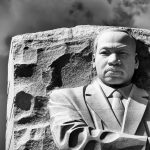ACRS Joins Asian American Communities, Allies Condemning Recent Anti-Asian Attacks, Call for Responses Addressing Root Cause of Racial Violence
SEATTLE (February 16, 2021) — As a national network of local and national Asian American organizations that convened in the wake of the pandemic a year ago, we have been working together to share best practices and lessons learned from responding to anti-Asian violence.
We are horrified by the continuing acts of violence against members of our Asian American communities across the country, from New York to Oakland’s Chinatown. We stand in solidarity with the survivors, victims, and their families during this challenging moment, when fear accompanies even the most basic daily experiences. We all deserve to live without the threat of violence and to feel safe in our neighborhoods.
True safety for all must come in the form of investment and resources, not punitive measures that create division and reinforce our criminal justice system’s discriminatory structures. Many grassroots Asian American organizations, including some who are part of this network, have worked for decades as part of multiracial efforts to secure such resources for all of our communities.
The recent assaults in the Bay Area and New York come on the heels of over 3,000 acts of documented anti-Asian hate incidents last year with chilling consequences for our community members who fear violence whenever they leave their homes. There are many additional cases that are misclassified, ignored, or unreported. Going to school or the grocery store, getting a COVID-19 vaccine, or simply taking a walk should not be accompanied by fear of injury or death. However, that fear remains the reality for so many of our community members across the nation.
President Biden’s Memorandum Condemning and Combating Racism, Xenophobia, and Intolerance Against Asian Americans and Pacific Islanders in the United States is a welcome step forward to acknowledging the impact of hateful political rhetoric on our communities.
However, much more must be done at the local level and nationally to combat the vitriol unleashed by the prior Administration, that continues to this day.
The solution to violence is not more violence in the form of aggressive and discriminatory law enforcement. Instead, we need interventions and responses that address the root causes of violence and that provide culturally and linguistically sensitive services for survivors, victims, and their families.
We also call for immediate and deep investments in our communities—including access to victims’ compensation funds, language accessibility, and culturally competent mental health services. We need community ambassador programs to accompany vulnerable community members home, bystander intervention training, equitable public school history curricula, cross-racial community and solidarity building, and restorative justice programs.
All sectors must play a role. Political leaders must follow the lead of community leaders in identifying policy solutions. Philanthropy can provide immediate and long-term resources for programs within our communities and partnerships with Black and Indigenous communities. Government agencies, from the Community Relations Service at the Department of Justice to state and local level programs, must prioritize healing and trauma-informed interventions.
Disrupting and dismantling structural inequities and racism will do much more to make us safe than further criminalization and conflict. The community-centered approaches we have shared will help us heal and more genuinely help our neighborhoods and communities become healthier, stronger, and safer.
——-
AAPI Organizations:
AAPIs for Justice San Antonio, TX
Act To Change
Arab American Institute (AAI)
Asian American Legal Defense and Education Fund (AALDEF)
Asian Americans Advancing Justice – AAJC
Asian Americans Advancing Justice – Asian Law Caucus
Asian Americans Advancing Justice – Los Angeles
Asian Community Development Corporation
Asian Counseling and Referral Service
Asian Economic Development Association
Asian Media Access
Asian Pacific Policy & Planning Council
Chhaya Community Development Corporation
Chinese American Museum of Chicago
Chinese American Service League
Chinese for Affirmative Action
Chinese-American Planning Council
Coalition of Asian American Leaders
Empowering Pacific Islander Communities (EPIC)
Equality Labs
Fresno Interdenominational Refugee Ministries (FIRM)
India Association of Minnesota
Islamic Networks Group (ING)
Japanese American Citizens League
Little Tokyo Service Center
National Asian Pacific American Women’s Forum – NAPAWF
National CAPACD
OPAWL – Building AAPI Feminist Leadership in Ohio
Philippine Study Group of MN (PSGM)
Raksha, inc
Release MN8
Seattle Chinatown International District Preservation & Development Authority
Siengkane Lao MN
Sikh Coalition
South Asian Americans Leading Together (SAALT)
South Asian Youth Action
Southeast Asian Community Alliance
Thai Community Development Center
Theater Mu
Vietnamese Social Services of Minnesota
Allies:
CAPIUSA
Center for the Study of Hate & Extremism, California State University, San Bernardino
Cullasaja Synergy Consulting, LLC
Interfaith Alliance
White Center Community Development Association
(Updated 2/12/21)
Resources:
Statement from Asian American organizations in the Bay Area
From @18million Rising, “Call on Me, Not the Cops” in Asian languages: https://18millionrising.org/2020/06/callonme.html
From APANO: A Resource Guide for AAPI Anti-HateActivists,Victims and Survivors of Hate
From Advancing Justice – AAJC and Hollaback! Bystander Intervention Training:
From Vision Change Win: Community Safety Toolkit
Hate Reporting Sites:




